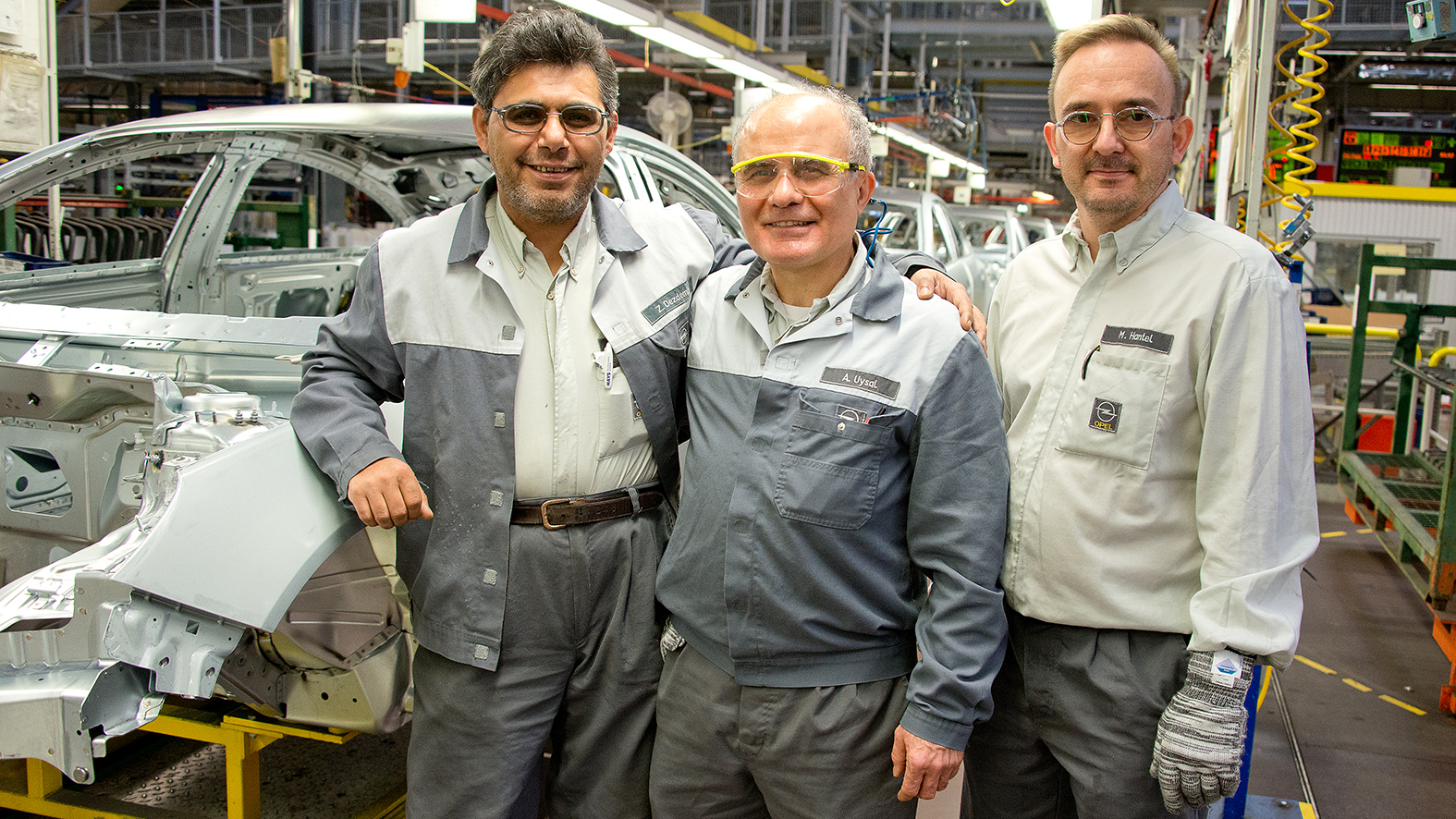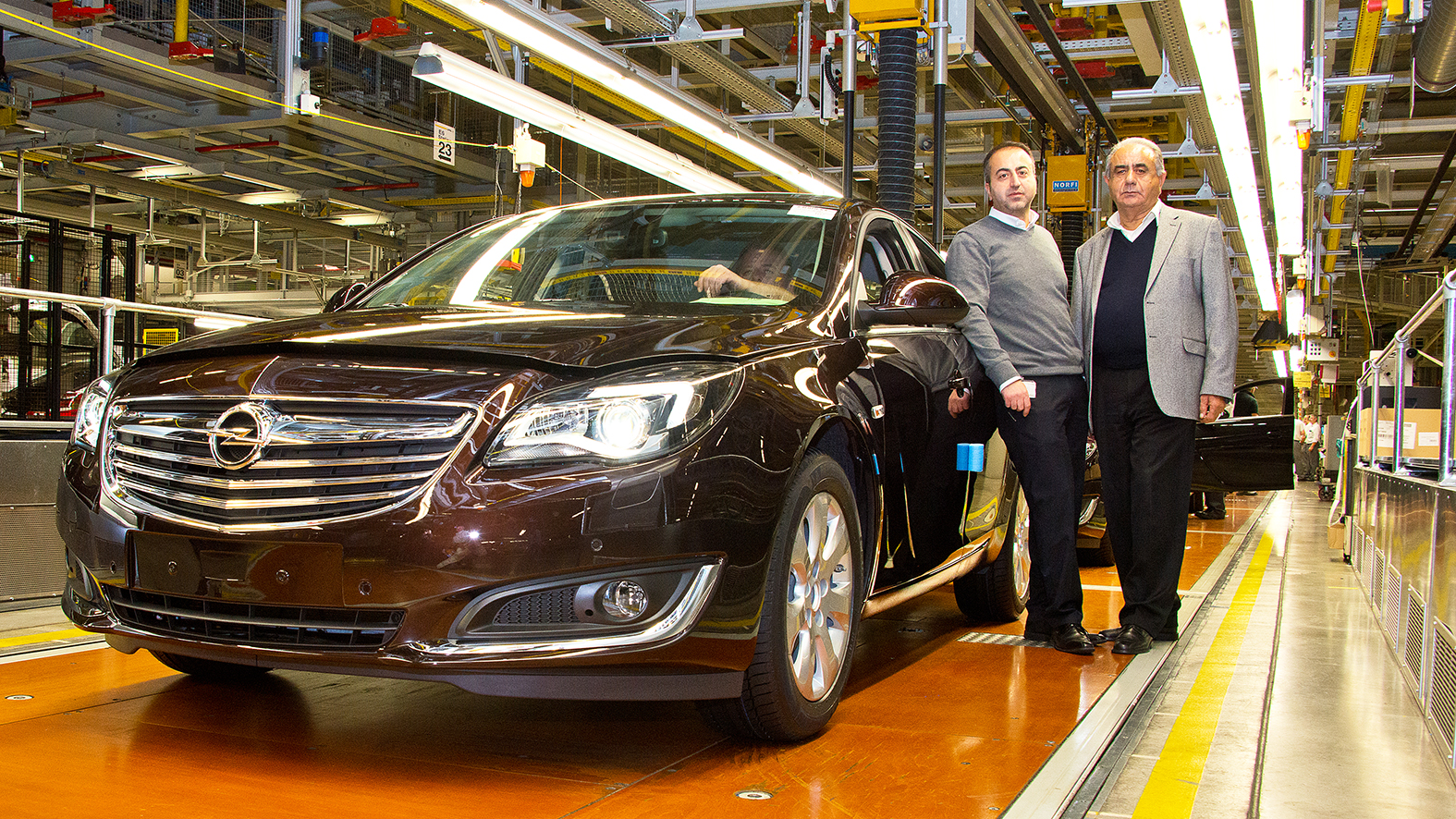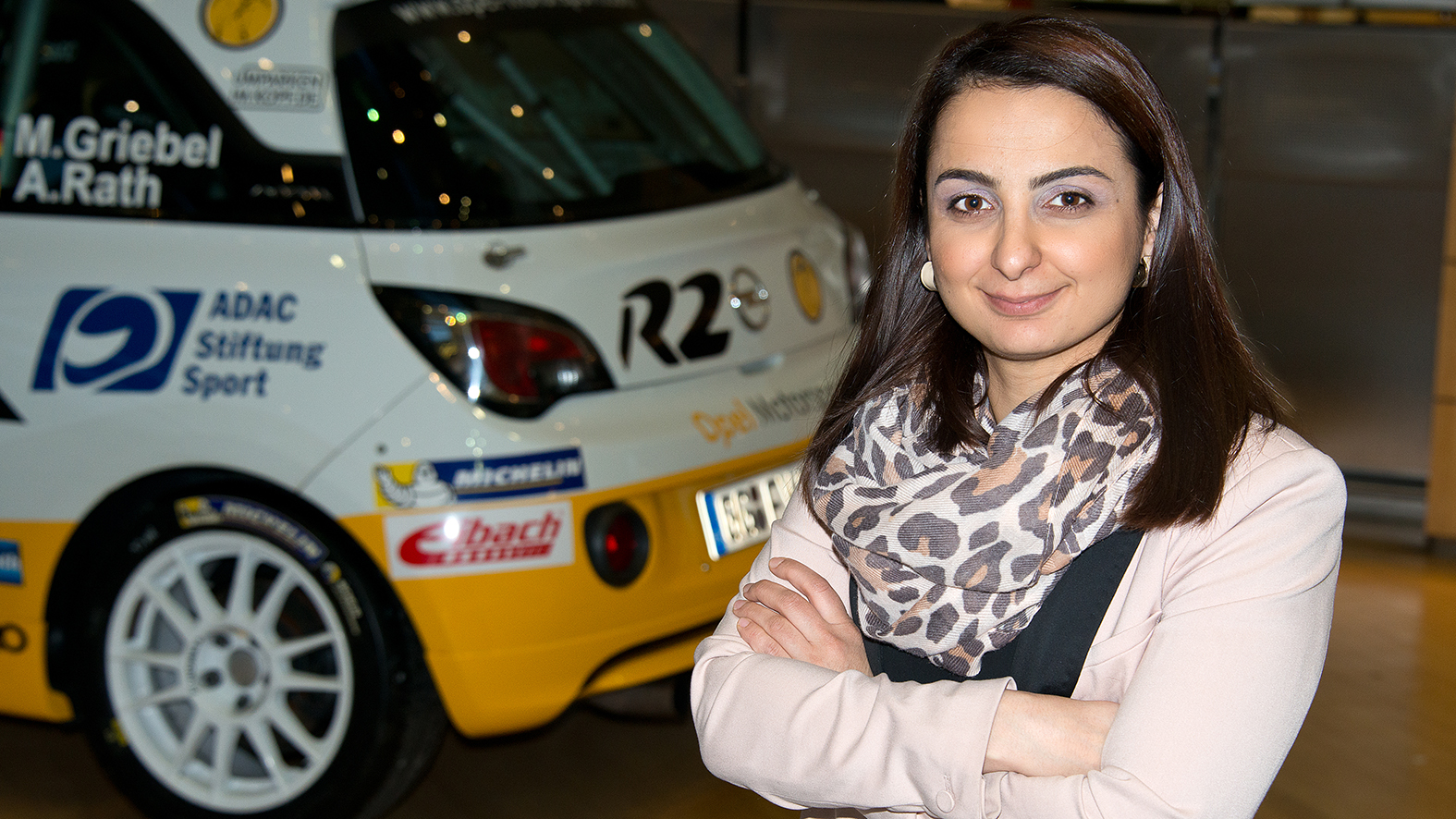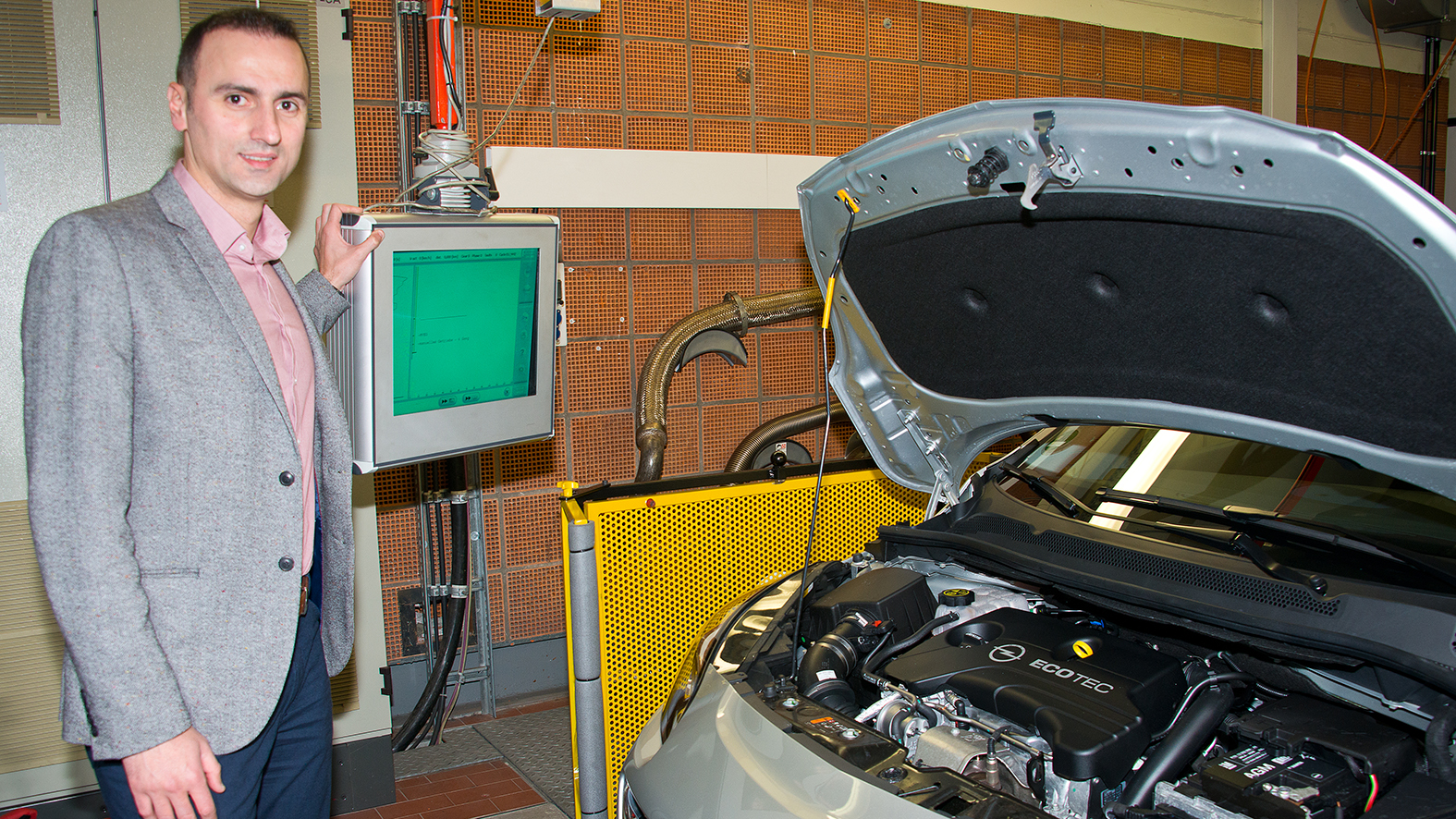Ali Uysal moved to Germany as a ten-year-old boy, after completing fourth grade at his school in Nazilli, a small town in Aydin Province. In the beginning Uysal’s Turkish origin played a key role for him. “I couldn’t speak a word of German so I was sent back to first grade.” But this obstacle did not get him down. “It was a motivating factor you could say,” says the employee in the chassis plant. Many hours of cramming vocabulary and after-school study groups followed, and any free time he had was spent hanging out with German friends in Frankfurt-Sindelfingen.
“I was able to skip ahead a few grades and began an apprenticeship as a mechanic at an Opel garage after getting my school-leaving certificate in 1976,” reports Uysal. “It was good to feel accepted both at and away from the workplace.” Yet Uysal wanted more. He joined Opel and proved to be a skilled assembly line work in the K40 plant, where his duties included bleeding brakes and installing power-assisted steering pumps. “I attended night school on the side to study mechanical engineering, switched to chassis construction, and became the first Turkish foreman at Opel in 1990. I’m still proud of this achievement today.”

Ali Uysal (center), 54, at the production line with his colleagues Zeki Özdemir (left) and Manfred Hantel (right).
A Tight-knit group
The family of Mehmet Ali Korkmaz (66) and Ali Korkmaz (42) consists of two Opel-generations. As a young man Mehmet traveled from the Anatolian town of Tunceli to Rüsselsheim in 1969. He found a job at Opel manufacturing chassis parts in the pressing plant. “We came from all over,” he remembers. “From Germany, Greece, Yugoslavia. Of course, we made jokes about other employees from different countries, drawing on clichés about their respective homelands. But it was never malicious. We were a tight-knit group; all part of Opel family.” Mehmet Ali Korkmaz retired several years ago, but ex-colleagues still ask after him to this day. His son Ali Korkmaz works for Opel, so he can pass on their regards.

Mehmet Ali Korkmaz (66) with his son Ali Korkmaz (42) (right to left).
“My father encouraged me to apply while he was still working there,” says Ali Korkmaz. He joined the company in 1988 and worked in the ITEZ Export division, among others. He switched to sales in 2003, where his work focuses on company vehicles and rental agencies. “I like to think of myself as from Mainz rather than from Germany or Turkey.” He firmly believes “you can go far at Opel with strong professional and soft skills.”

Aysel Kirazli, aged 32, in front of her favorite Opel, the R2, in the Adam Opel Building.
International and Multi-cultural
Aysel Kirazli, aged 32, agrees to that experience. Kirazli, who holds a degree in business administration, supervises budget coordination activities for gasoline engine development. “I’m also responsible for ordering and communicating with service providers,” she adds. Kirazli was born in Wiesbaden, Germany, and joined Opel in 2007. Are her Turkish roots ever a topic for discussion during her everyday work? “Well,” says Kirazli, with a grin on her face, “only when I tell someone my e-mail address and they have difficulty spelling my name correctly.” But she explains that Germans also have problems spelling the names of eastern European employees or even some German names. “The company is so international and multi-cultural that it’s only during events like the World Cup that heritage actually plays an important role.”

Vural Yanik, aged 37, oversees a Conformity of Production (COP) test, where an engine’s consumption and emissions are checked.
Think and act globally
Vural Yanik’s expertise is in strong demand. The qualified aerospace engineer chose to specialize in fluid mechanics at Opel, and applies his knowledge to the design of gasoline engines in the 3D phase. “As group leader, I supervise fluid dynamics simulations performed on the engines. My team is responsible for everything that flows through a drivetrain, be it air, gas, water, or oil.”
Yanik, who was born in Mainz to Turkish parents from Trabzon, made a conscience decision to join Opel after completing his studies in Stuttgart. “I always wanted to work for a company that thinks and acts globally,” he says. Yanik mostly speaks English with his fellow workers. “You learn a lot about different mentalities and customs. For example, Americans like to talk shop over a meal while the Germans don’t. Meanwhile, Indians are always up for small talk.” And what about his Turkish roots? “Personal relations are what counts, not what it says in your passport.”
West Germany was experiencing a post-war boom at the beginning of the 1960s. The “Wirtschaftswunder” (economic miracle) helped the industry grow at an impressive rate.
Adam Opel AG was also expanding, so quickly that it needed new workers to help build its vehicles. Turkish migrant workers took up most of the open positions on the production line, alongside Italians, Spaniards, and Greeks.
This development was facilitated by the recruitment agreement between West Germany and Turkey. The workforce alliance pact was signed on 30 October 1961 and marked the official start of Turkish immigration to Germany.